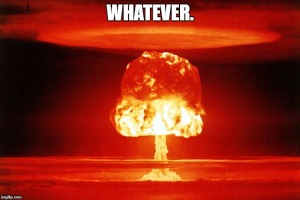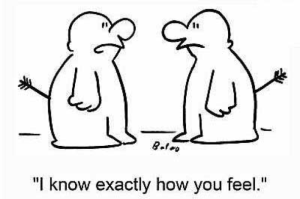
While I don’t hold Trump or his administration directly responsible for the increase in mass shootings and killings this year, there definitely seems to be a lot more of them than ever before. I think the national mood where people have become so divided and where hatred and violence have become almost normalized have been a contributing factor to these killings. It seems that almost every week now, there is a news story about yet another mass shooting or terrorist attack (to me, this includes white nationalist domestic terrorism) here in America. I feel more and more like we are living in a third world country where these sort of things are commonplace.
When the news broke today about the shooting at a Texas church, where 25 worshipers were killed, my first thought was a detached, almost bored, “again?” This was followed by the cynical thought “I sure hope it was a white guy who did it, and preferably a Republican” (because a Muslim, black, Mexican, or liberal shooter would make my side “look bad” and contribute to even more Trumpian cracking down on people’s civil rights).
My reaction shocked me. I didn’t feel much grief or outrage for the people who lost their lives in the one place — a church — that’s supposed to be a sanctuary from the world and all its problems. I didn’t think about the families who would be grieving for their lost loved ones or about all the innocent injured people who would never be the same again even after they physically recovered. No, I automatically politicized the atrocious event. My only real concern was that the shooter had best be a white conservative or just someone who “snapped” under stress.
A month ago, a man opened fire on 500 innocent country music lovers in Las Vegas and 58 of them died. I reacted more strongly to that event, and I don’t think it was just because more people were killed that time. I think it was because I still saw these kinds of events as abnormal; tragedies like that that just didn’t happen here in America. But even then, I had already begun to normalize such events in my mind. In June of 2016, when 49 people were shot in an Orlando nightclub, I cried. I doubt I would have cried had that happened anytime this year. In fact, I worry that if 9/11 happened today, it wouldn’t have anywhere near the gravity it did seventeen years ago, and after a few days of outrage and grief, I’d just forget it happened, like I have with all the terrible events this year.

I know I’m not alone. I’ve talked to others about my growing indifference and cynicism and they have told me they feel the same way. I’ve also have noticed the way it seems to take a lot less time for us as a nation to recover from such events. The Las Vegas shooting has been all but forgotten and is barely mentioned in the news anymore, as the daily bombardment of other terrible or frightening news overwhelms us and eclipses that terrible event. Would we be so quick to forget something like that a year ago? Ten years ago? If 9/11 happened today, would we have already moved on with our lives? I’m afraid we might have. In fact, rather than bring us together in solidarity as a nation the way it did then, I’m afraid 9/11 would have divided us even further into opposing political camps, with some demanding martial law or even tossing Muslims into concentration camps.
I think America is experiencing a psychological phenomenon called empathy burnout or compassion fatigue. It’s a common condition among people who work in the helping professions. When you’re continually exposed to the hurting, the dying, the sick, and the victimized, people begin to unconsciously put up an emotional shield to protect themselves. In other words, they lose their capacity to empathize, at least for the group of people they’re helping. I’ve read this sometimes goes so far that some people even begin to resent or feel contempt for their vulnerable charges. Compassion fatigue is the reason why there’s such high turnover in professions like social work, firefighting, police work, teaching, emergency services, and nursing.
When compassion fatigue begins to infect an entire country, and we all begin to psychologically wall ourselves off from the world and stop caring, such events become “normal” to that society, and we become less able to recover our national sanity at the one time we need it the most.
We can’t afford to lose our capacity to feel pain and empathize with the victims of atrocities like these mass killings. But since we also need to emotionally protect ourselves, I think the only way to avoid compassion burnout is to take frequent breaks from the news, as addictive as it has become in these times. Spend time with your friends, your family, and immerse yourself in non-news related interests and hobbies. Spend time with animals or in nature, or engage in volunteer work (but not so much you get burned out). Remind yourself that these are not normal times we live in, and these events are not normal. It’s also important to remember that the emotional numbness we may be feeling when we hear of such events don’t mean we’ve become bad people or that we don’t care, but is a normal reaction to trauma, and these are are all trauma-inducing events, even though they may not directly affect us.
We also should be working toward tightening our gun laws, but that’s another topic which I won’t elaborate on for now.

